Your Cart is Empty
Buy a book, plant a tree.
The studio that creates a window into another world, the rigorous processes of mastering a set, plus taking a financial loss to develop a new wave of creative output

Directed by Ezequiel Pini, the soul of Six N. Five is bridging design together with art in a distinctive fashion. Since being founded in 2014, the design studio has been transforming perceptions of what digital design can be through their minimal, surreal, and tranquil creations. From their professional work for the likes of Samsung to more introverted personal projects, Six N. Five have been turning heads through their forward-thinking 3D work and aesthetic.
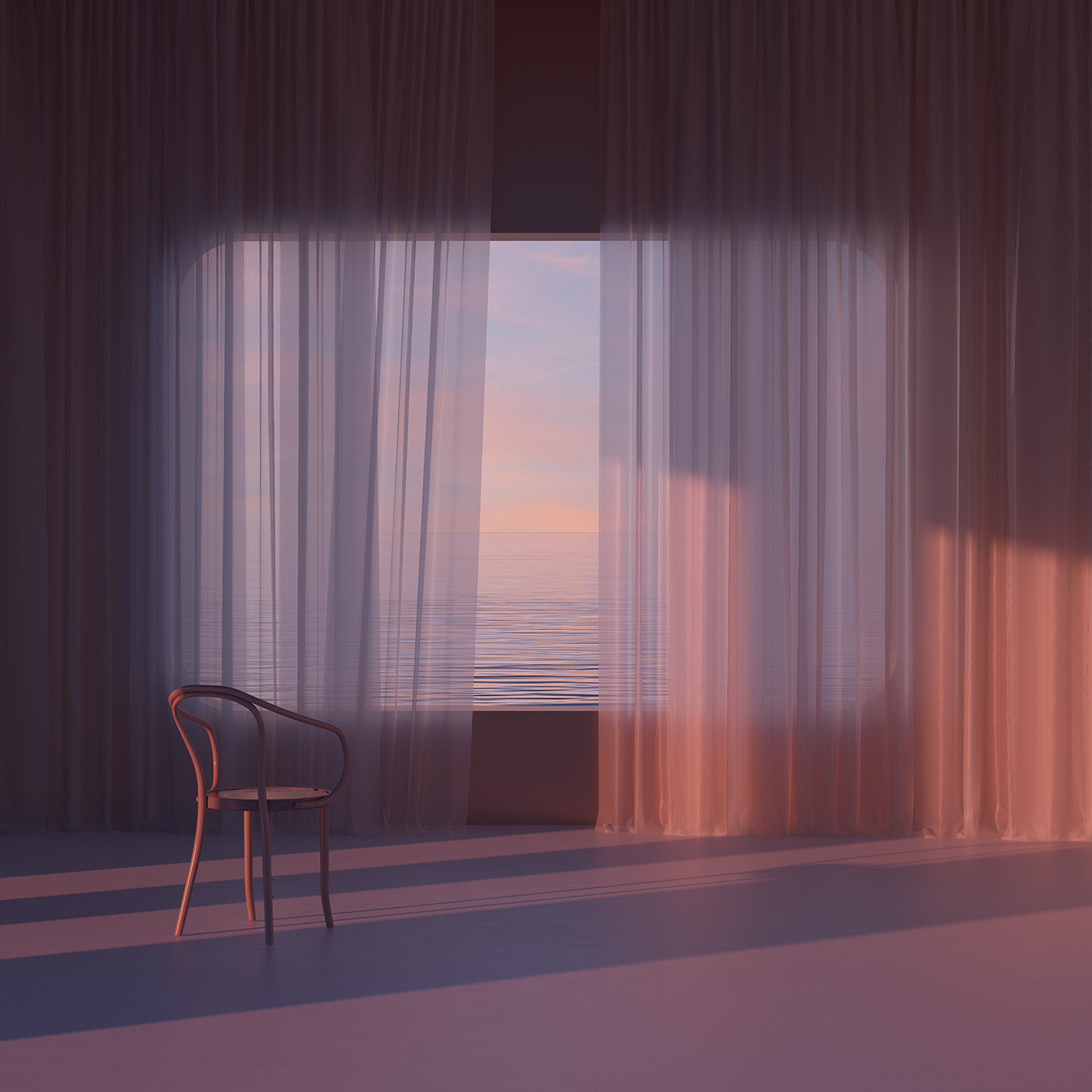
The studio has built its reputation from having a very unique aesthetic. They create daydream atmospheres that whisk you away into another mindset like René Magritte's Le monde des images. Scroll through their work on Instagram and you'll come across comments like, 'This picture cures anxiety' and another saying, 'This speaks to my soul.'
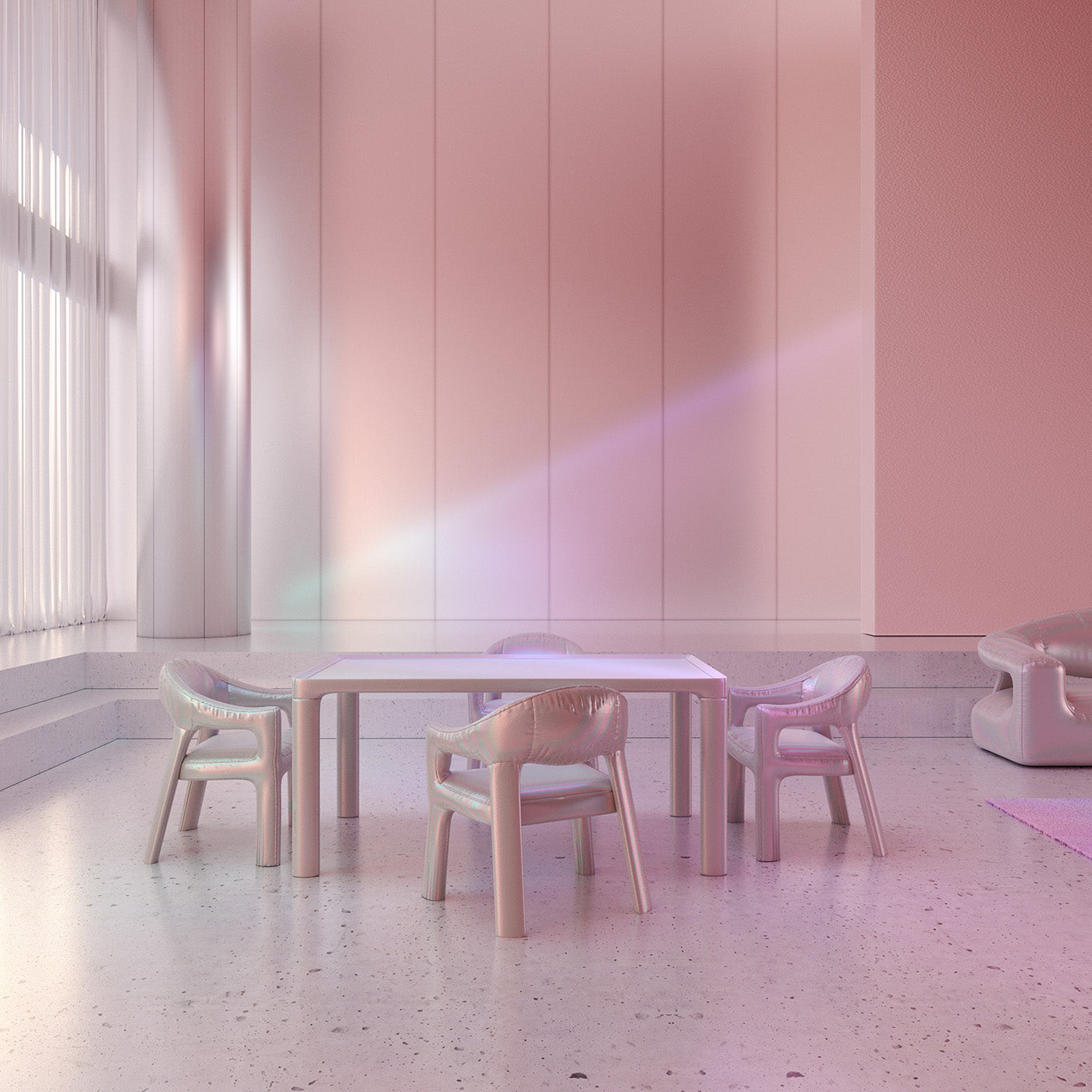
To coincide with the release of their new furniture concept, we find out more about Ezequiel and how Six N. Five became one of the most innovative design studios in the industry. Born in Buenos Aires, Ezequiel begins by saying he's been a fan of gestalten since his student days back in Argentina. He had an early introduction to the world of digital art and computers and had begun experimenting with PhotoShop in his childhood. Although at one moment it looked like he might have a future in Taekwondo–he was a serious fighter and even went to North Korea to compete. But Ezequiel stopped training to dedicate his life to graphic design and digital media.
After studying Graphic Design at the University of Buenos Aires, Ezequiel opened up Six N. Five with his former partner Andy Reisinger. The plan was to grow slow and stay close to family, friends, contacts, and colleagues. But the business and demand grew quickly. Most of their commissions starting coming in from Europe, so Ezequiel made the decision to relocate. We asked him what influenced his decision to leave Argentina behind?
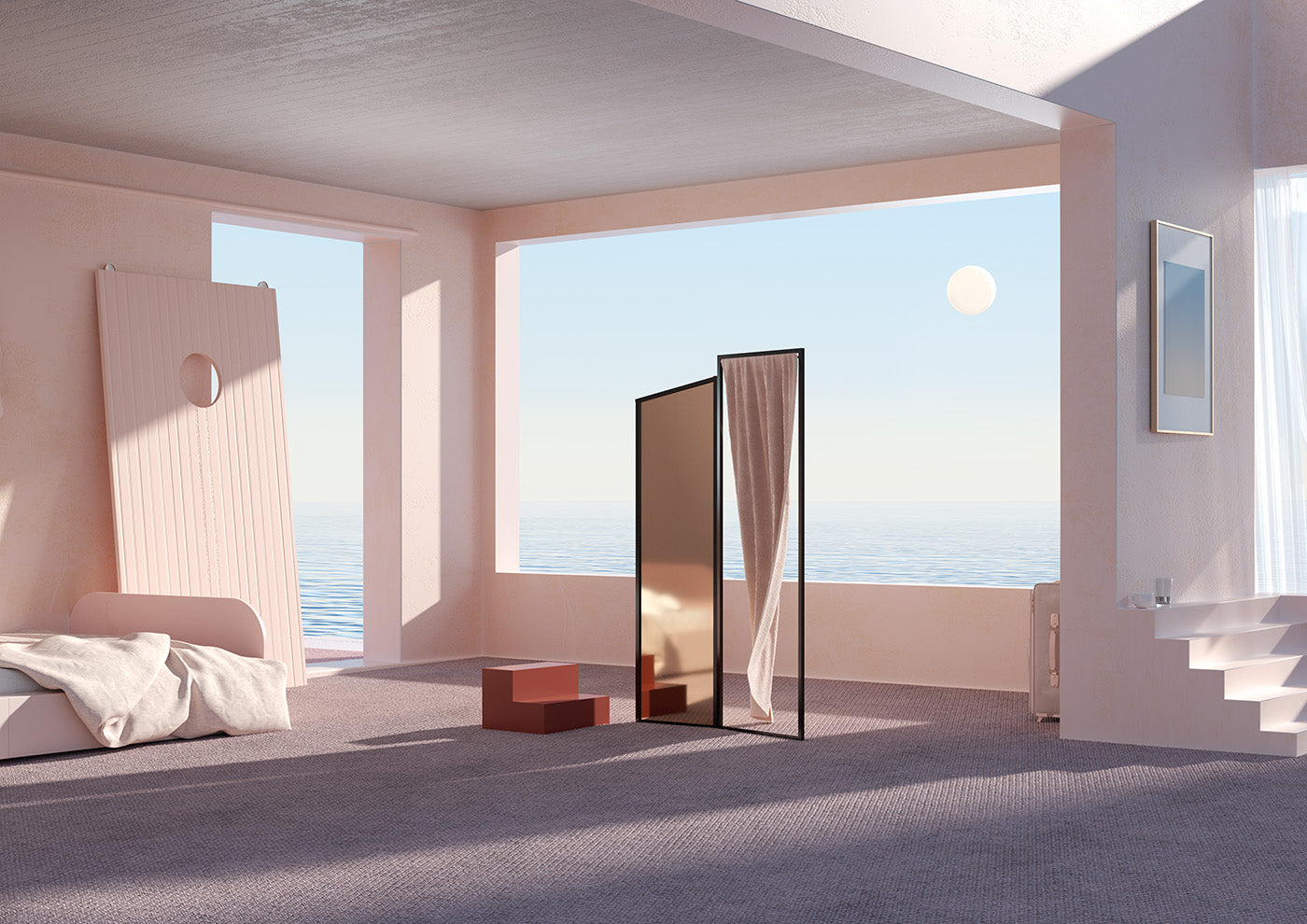
"Some years ago, I had the experience of living and working in Madrid for a period of six months. That beautiful experience of living out of my country has always been in my mind. Basically, that is why two years later Six N. Five was born. Having most of our clients outside our country, we thought it would be a good moment to move and to have new experiences."
Barcelona stood out to him after visiting the Mediterranean city as a tourist. The Catalonian city has been on an unprecedented rise since the 1992 Olympic Games, becoming one of the jewel economies of Europe and a melting pot for creativity. Plus Ezequiel notes the beach, mountains, and language as being other pulling factors toward the city. Having a base in Europe and being an hour or two away from clients was the next step for the studio. Their portfolio of clients has grown to include Massimo Dutti, Uniqlo, Nike, and Bloomberg.
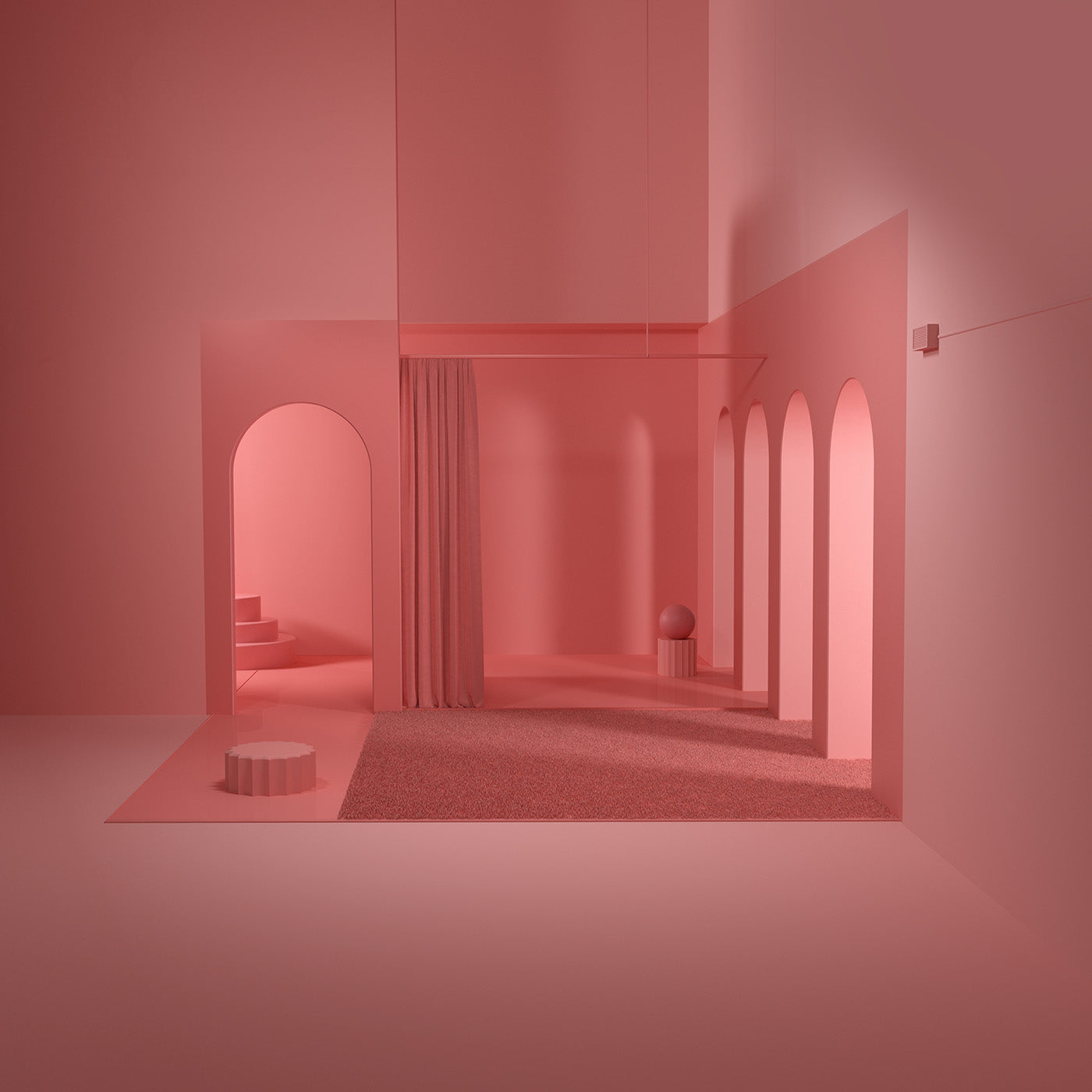
With an avant-garde approach, Six N. Five's work is incredibly visually pleasing, emotional, and beautiful. We put this to Ezequiel and asked him how he would describe the style of the studio?
"I really appreciate your words. It isn't easy for me to describe our own style, but I can use some words to talk about it: subtle, soft, conceptual, graphical, mostly pastel, and sometimes provocative. The soul of the studio tends to be placed in the frontier between art and design. We think they both have similarities, but they are also completely different, so we love to explore this position. Something else that is key to us is creating work that has an emotional connection with the viewer. A feeling, a smile, discomfort, or even pleasure. This isn't easy, but when we are able to make that connection, it makes us feel really nice.
A recent example of their work achieving this emotional connection is their Samsung commission for #PerfectReality. Six N. Five developed a series of images and videos to showcase the technology giant's new television. This was the third occasion they worked together in the past year. Ezequiel said everytime they finish a project, Samsung briefs them on a new concept which they simply can't resist. For this instance, they wanted to mix TV and reality together in an unorthodox way, bringing what you see on screen into the real world. He told us the aim was to "transport you into another reality, where you are lost in space and don't know where you are anymore. But you don't care because it's perfect."
The final result is a virtual world that gives you a sense of being on another planet. There are two moons in the sky and a pastel landscape in the distance where mountains and rocks seem to elude the possibilities of gravity. A stunning oasis of light colors and surreal backdrops, we ask Ezequiel what processes and inspiration go into creating these digital experiences?
"Our processes are pretty similar to all design areas. I’m going to be a bit technical but we start finding references for lighting, materials, spaces, and textures. Then we start the projection in a sketch, drawing or sometimes doing it directly in 3D software. From there we model, place lights, and cameras in the set to give a sense of what it would look like in the real world, then we start the shading process. Here we test color combinations, lights, positions, and models until we reach a result where we feel happy, then we render. The longest process is to create realism, we spend a lot of hours or even days depending on the project adding imperfections, dust, and details to make it feel more realistic."

The detail in their work is impeccable. A masterstroke of light and composition alongside surreal backdrops. Ezequiel says they draw inspiration from everywhere. Working in 3D allows the studio to combine the different textures and shapes they love together in a realistic way. Taking in as much imagery as possible is important to their design ethos, to stay up-to-date with trends and what is happening in different areas of the creative industries.
Not all commissions match expectations though, a problem many studios and agencies battle with yearly. Commercial projects can wear you down, Six N. Five are not exempt from this. This is why they introduced The Lab, a period when the studio closes from client commissions to work on in-house projects. The aim is to develop new content over a two month period away from the burden of deadlines.
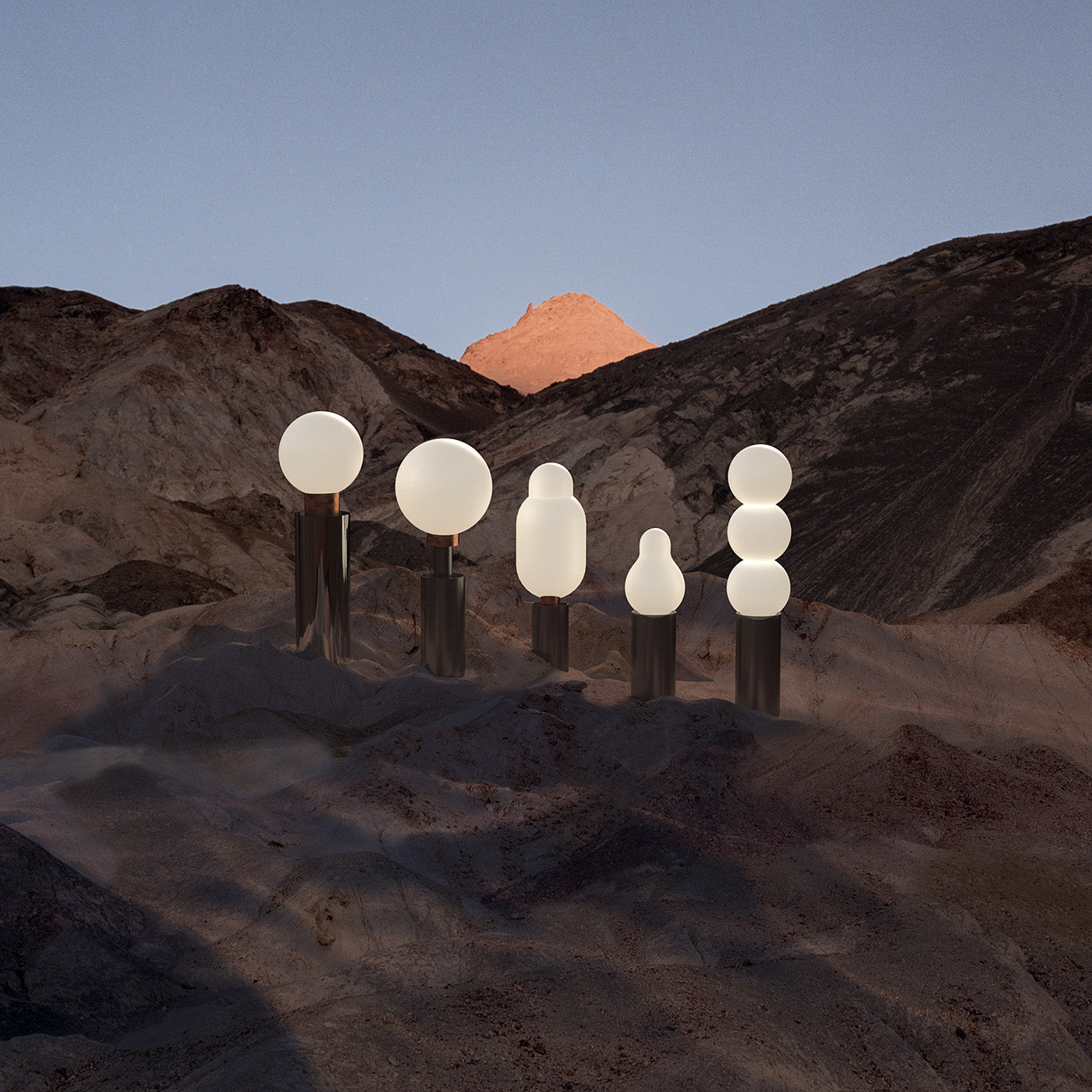
Working in total freedom, the studio explores new ways to create and connect. This process isn't easy, but Ezequiel recognizes that exploring new creative input is worth the financial loss. He told us:
"I think this situation sets your mind free in a relaxed mood because you don’t have the pressure of a strict deadline breathing down your neck. It sounds hard but when you need to reach a result in a short period of time, most of the time you are sacrificing quality and detail, you need time for experimentation and overall better creativity."
The Lab started off as personal projects for Six N. Five, adaptions of social media gratification to furniture concepts, which turned into a chain effect for future commissions. Clients saw their experimental work and wanted Six N. Five to recreate something for them in the same breathe. Ezequiel says there are more benefits than losses to The Lab now.
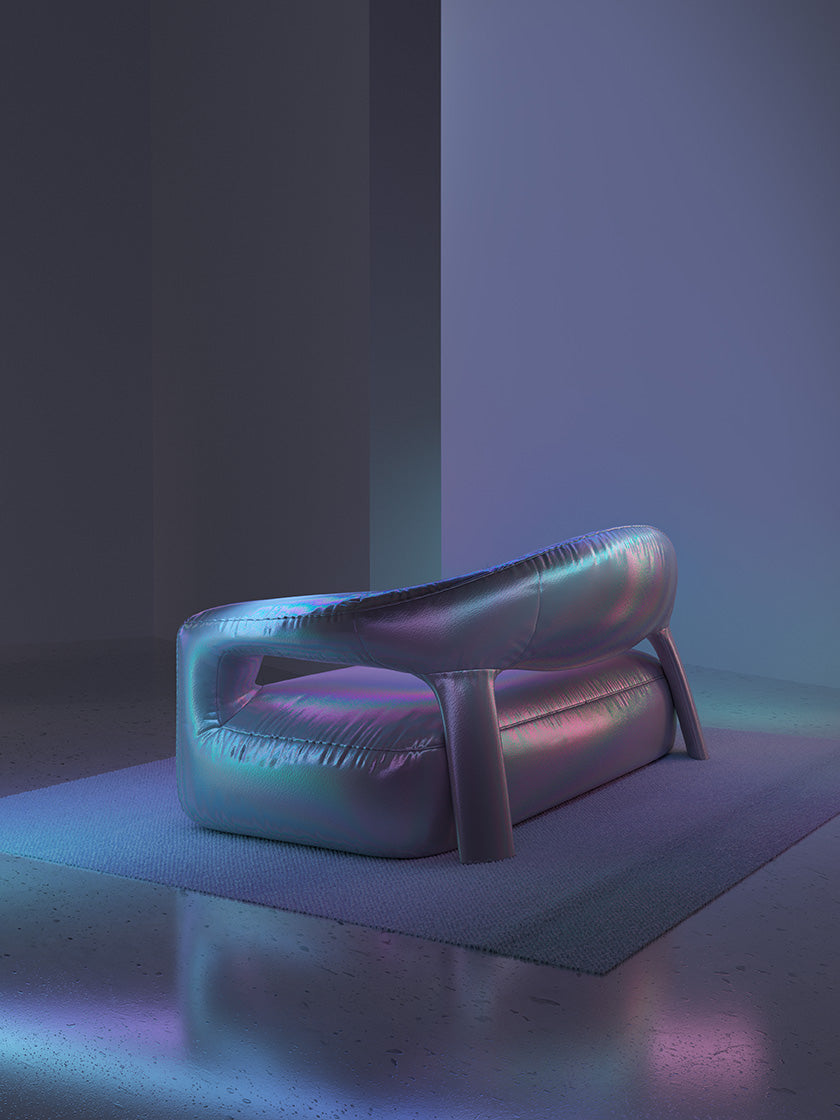
The latest project to come from The Lab is their furniture collection concept called Holo-Scandinavian. Ezequiel said Six N. Five received a lot of commissions related to objects, furniture, and interior design in the past two years. He said, "Most of the time, our role was to solve the concept and/or set designs of the environment where their products would live, a brief we really love working on. We thought this year we wanted to explore this a bit further, so in addition to the concept, art direction, and set design, we tried to conceptualize the furniture itself-the star of the visual."
Working with Joan Garcia Pons and Brazilian product designer Artur de Menezes, who worked for Six N. Five during a three-month internship, the team created a collection that celebrates mid-century Scandinavian design. "Exaggerated and unexpected shapes" is how Ezequiel explains the concept, lauding what made these Northern European designs famous globally.
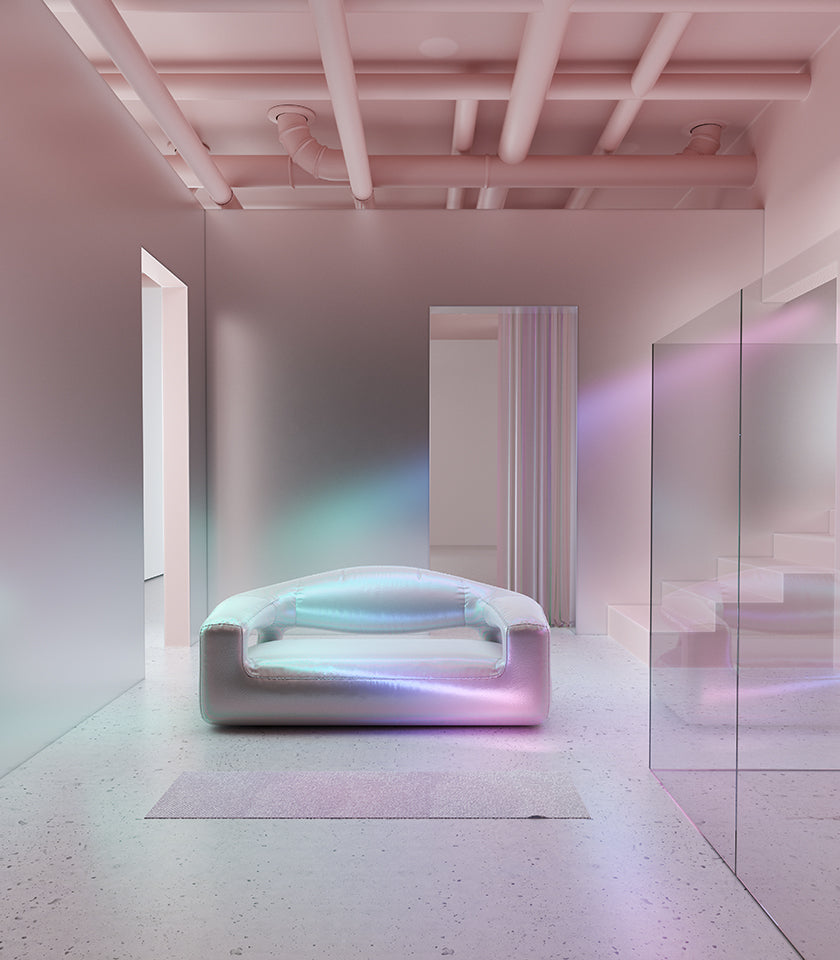
"Holographic materials and lights contribute to a surreal and almost unreachable result, and it reflects our vintage narrative from a place that is not inhabited anymore. A place that stands in the past, of which we no longer have access, with its own memories and solitude. No more than an emotional expression of our favorites from the past brought to life through our modern view."
Ezequiel says he loved working on the project and having people come onboard to help design the concept. Turning these concepts into practice was the next step for Six N. Five. But ultimately he has been cautious about the whole thing. Before jumping, he wants to see what sort of reception the furniture concept receives within the creative industries.
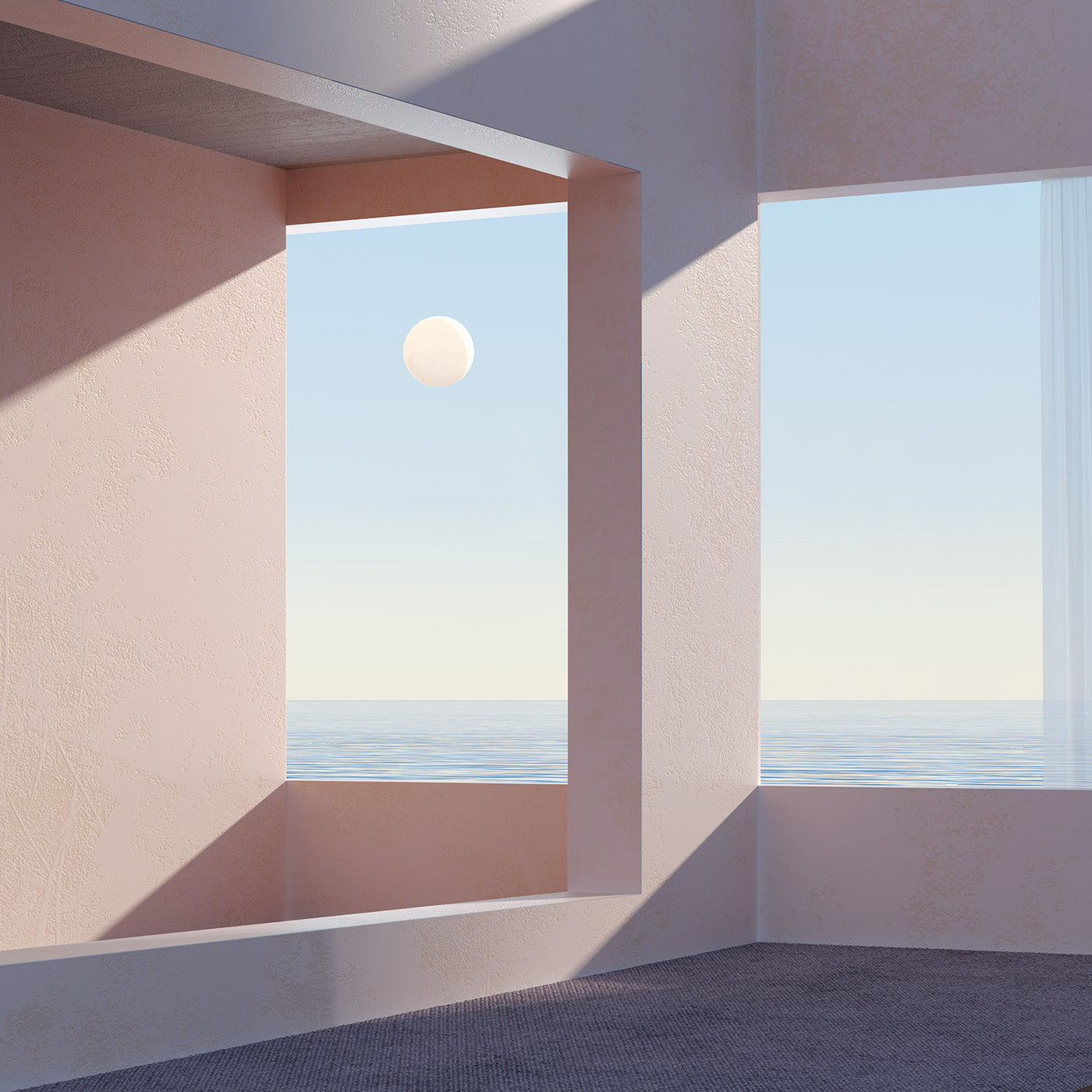
For now, Six N. Five are in the earlier days of collaborating with Ricardo Bofill Architecture, working inside their design team. They are continuing to work with some of the world's biggest brands. Sadly they aren't allowed to mention much more than that at the minute but told us to keep our eyes peeled on social media.
Find out more about Six N. Five in Dreamscapes & Artificial Architecture or Explore some of our graphic design titles